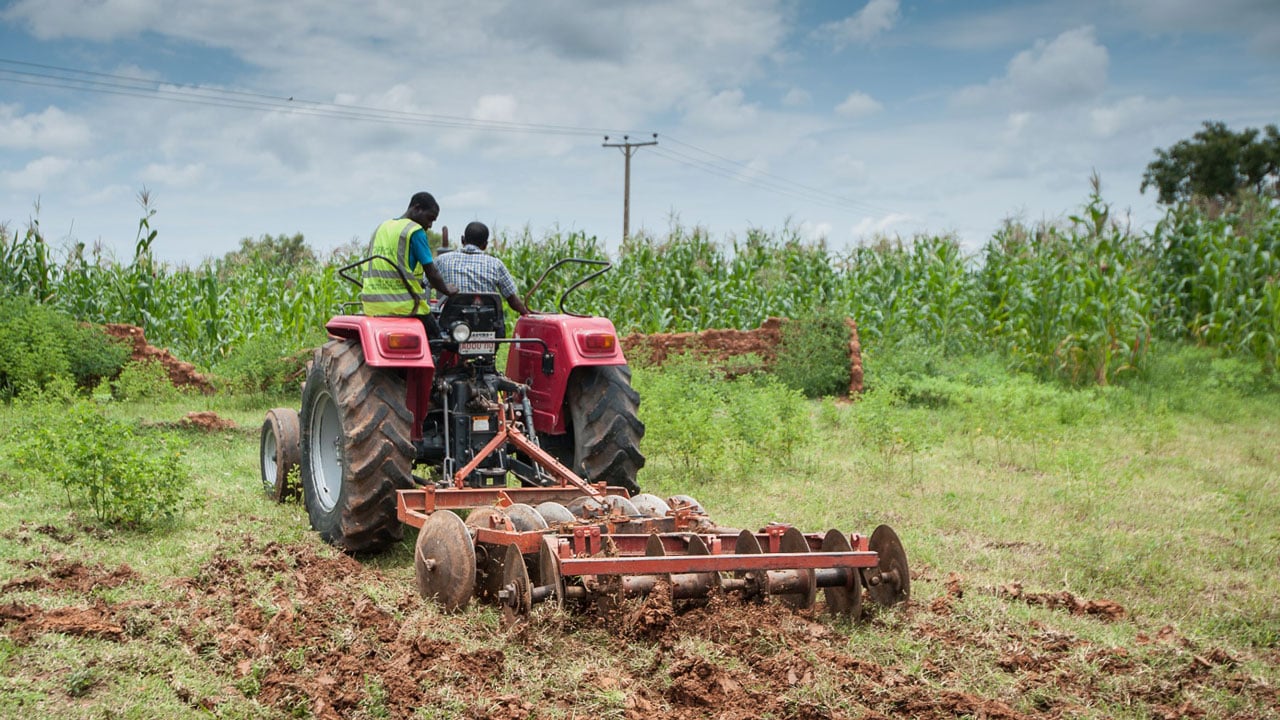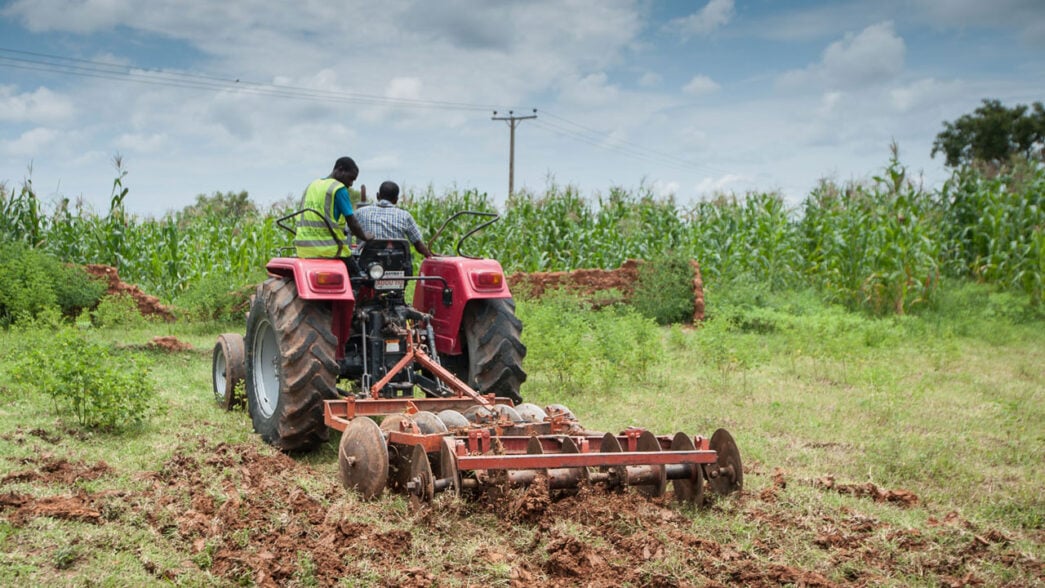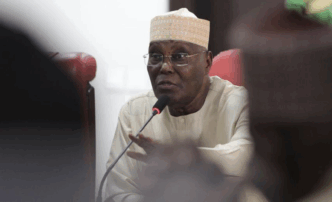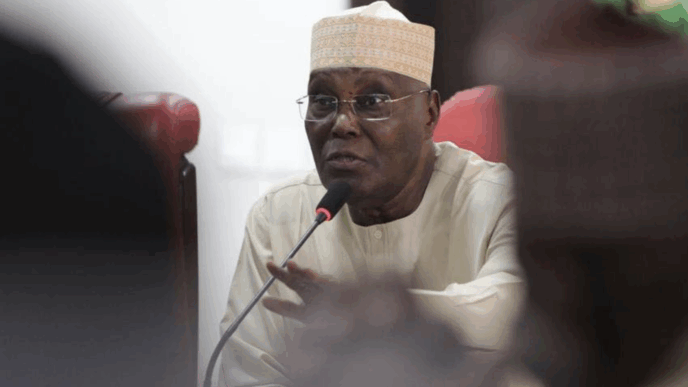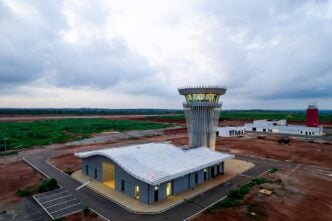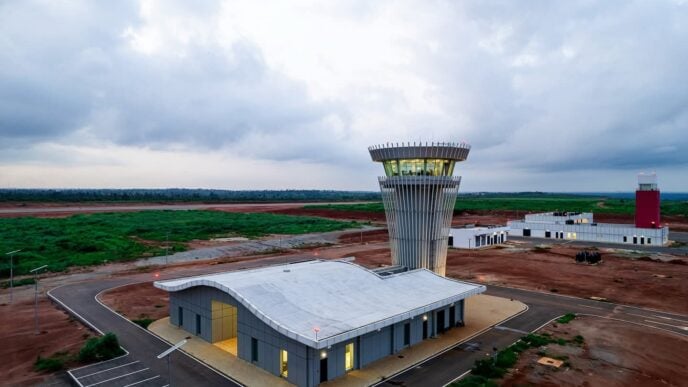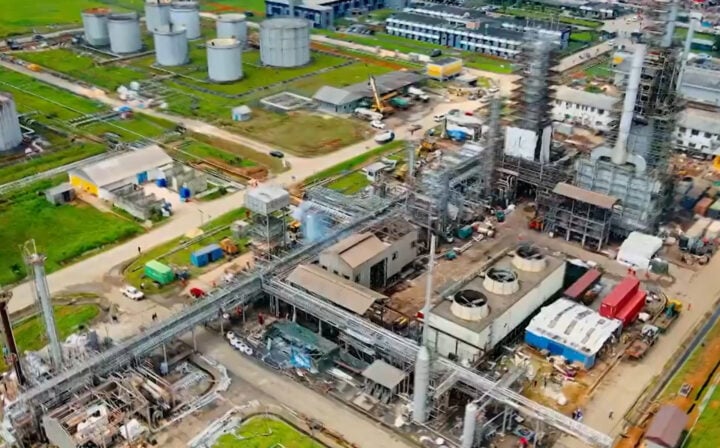BY ADE ADEFEKO AND TOLA OGUNNUBI
One of the most meaningful ways a government can earn the trust and loyalty of its people is by guaranteeing food security. As the old saying goes in the lands of my fathers, “a hungry man is an angry man.” This timeless wisdom reminds us that no nation can experience genuine development when its citizens are malnourished, poorly fed, or unable to afford food. Food insecurity not only weakens physical health but also diminishes productivity and social stability.
If there is one sector where the administration of President Bola Ahmed Tinubu deserves commendation, it is agriculture. Through deliberate and targeted interventions, this government has shown a genuine commitment to reviving the sector, ensuring that food sufficiency is not just a policy aspiration but a visible reality in Nigeria.
With an estimated population of over 230 million people, Nigeria stands as the sixth most populous country in the world—behind India, China, the United States, Indonesia, and Pakistan. Feeding such a vast population presents both a challenge and an opportunity. One of the critical barriers to food security in Nigeria remains inadequate agricultural financing. Without access to capital, our farmers cannot invest in modern tools, improved seeds, irrigation, storage facilities, or transport infrastructure—elements essential for a productive and resilient agricultural economy.
Agriculture has long been the backbone of Nigeria’s economy, employing over 70% of the population and contributing 21.04% to GDP according to the latest data from the National Bureau of Statistics (NBS), the sector contributed through crop production, livestock, forestry, and fishing in Q2 2025 (April – June), a significant drop from the previous 23.33% to real GDP in Q1 of 2025. The sector’s key role in the economy cannot be overemphasized.
Advertisement
However, agricultural growth in Nigeria has been hampered by limited access to finance, particularly for smallholder farmers who dominate the sector. Agricultural business financing in Nigeria refers to the provision of credit, loans, subsidies, and other financial instruments to support farming, agribusinesses, processing, and value chains. This history traces the evolution from colonial-era reliance on informal credit to modern value-chain-focused policies, marked by government interventions, institutional developments, and responses to economic shifts like the oil boom and structural adjustments. Key challenges have included high risk perception by lenders, inadequate collateral, and low budgetary allocations, with the latest challenge being climate (weather) change. Nigerian agriculture was export-oriented before now, focusing on cash crops like cocoa, groundnuts, palm oil, and rubber, which accounted for over 60% of GDP and 70% of exports in the 1950s. Financing was rudimentary and informal, relying on moneylenders, cooperatives, and colonial marketing boards that extracted surpluses for export rather than reinvesting in production.
Smallholder farmers, who produced 95% of food needs, had minimal access to formal credit due to the absence of dedicated institutions. Post-independence (1960), with an increasing population, the focus shifted to food self-sufficiency, but financing remained limited, with regional governments deriving revenues from agriculture without substantial reinvestment safe for the iconic 26-story skyscraper Cocoa House in Ibadan attributed as a significant proceeds from a prosperous agriculture business by the regional western government and was officially commissioned in 1965, initially named ‘Ile Awon Agbe” ( House of Farmers). Watching the Diamond anniversary of the building in a documentary on television recently was nostalgic.
Agricultural finance is, therefore, not just a fiscal necessity; it is a strategic imperative. Nigeria’s path to food sufficiency, rural development, and economic resilience runs through the farmland—and the farmer must be adequately financed. In July 2023, President Bola Ahmed Tinubu officially declared a state of emergency on food security in Nigeria. He ordered that all matters relating to food and water — specifically availability and affordability — be placed under the purview of the National Security Council as essential livelihood issues. The declaration recognized that while food availability was less of a challenge, affordability was a severe issue for many Nigerians due to inflation and economic pressures. President Tinubu also renewed/affirmed or reissued a similar state of food security emergency in April 2025 during the African Regional Conference on Irrigation, citing identified food deficits under his “Renewed Hope” administration.
Advertisement
This brings us to the Bank of Agriculture (BOA) Limited, a cornerstone institution established to serve as a lifeline to farmers, agribusinesses, and rural communities. For over five decades, the BOA has operated with a mandate to stimulate growth in the agricultural sector. Yet, its full potential remained largely untapped—until now.
“For over five decades, the Bank of Agriculture has served Nigeria’s agriculture sector. While its full potential remained untapped, today, with new leadership and unprecedented support from the government, Bank of Agriculture 2.0 emerges empowered to deliver the impact it was set up to achieve.”
— Ayodeji Oludare Sotirin, Managing Director and Chief Executive, BOA
This bold declaration from the current MD/CEO signals a new era—BOA 2.0—where innovation, leadership, and strategic financing converge to transform Nigeria’s agriculture.
Founded in 1973 and jointly owned by the Ministry of Finance Incorporated (60%) and the Central Bank of Nigeria (40%), the BOA has always been well-positioned to play a pivotal role in agricultural transformation. Now, with renewed government backing and visionary leadership, the Bank is set to move from merely existing to truly performing—mobilizing resources, empowering stakeholders, and unlocking the vast potential embedded in Nigeria’s soil and her hardworking farmers.
Advertisement
If Nigeria must feed itself and become a net exporter of food, then the Bank of Agriculture must be recapitalized to rise to the occasion. This moment is a turning point—not just for the BOA, but for the millions of Nigerians whose hopes for prosperity depend on the land they till.
To reposition the BOA as a catalyst for agricultural transformation, recapitalization is not only necessary—it is urgent. The 2025 federal budget (N54.9 trillion) includes a proposal by President Tinubu to boost the BOA’s capital base with ₦1.5 trillion, this must go beyond a proposal but must be urgently implemented. Announcements and budget inclusions are different from actual inflows or operational capital increases.
Recapitalizing the Bank of Agriculture is not just an economic decision; it is a strategic national priority. If properly capitalized and governed, the BOA can become Nigeria’s answer to food insecurity, unemployment, and rural poverty. It can drive a new era of agricultural prosperity—where the seeds planted by farmers are matched by the confidence of a nation that supports them. The country stands to benefit tremendously from a recapitalized BOA through the following:
- Increased Lending Capacity:
With a larger capital base, BOA will be empowered to extend more loans at lower interest rates, especially to smallholder farmers who make up over 70% of Nigeria’s agricultural workforce. - Modernization and Innovation:
A recapitalized BOA can invest in digital banking infrastructure, risk management systems, and farmer-friendly platforms to improve service delivery and reach underserved rural communities. - Crowding in Private Investment:
Strong capitalization enhances the Bank’s credibility, attracting domestic and international co-investors, including development finance institutions (DFIs), agro-allied companies, and impact investors. - Reducing Dependence on Imports:
With increased financing to primary producers and agro-processors, Nigeria can reduce its reliance on food imports, save foreign exchange, and strengthen local value chains. - Job Creation and Rural Development:
Empowering rural communities through access to affordable financing will stimulate entrepreneurship, reduce rural-urban migration, and create sustainable livelihoods.
A recapitalized and revitalized BOA collaborating with sister agencies like the government owned agricultural de-risking company; the Nigerian Agricultural Insurance Corporation (NAIC) can drive Nigeria’s agribusiness transformation, potentially contributing 60% to the nation’s GDP. As a matter of urgency, recapitalizing the Bank is more demanding and pressing than ever.
Advertisement
Ade Adefeko is Director, Corporate and Regulatory Affairs Olam Agri, ex-Officio NACCIMA, and honorary consul of Botswana in Lagos while Tola Ogunnubi is an Actuarial Scientist, a Nigerian Public Relations Professional and a figure in the country’s agricultural sector.
Advertisement
Views expressed by contributors are strictly personal and not of TheCable.
